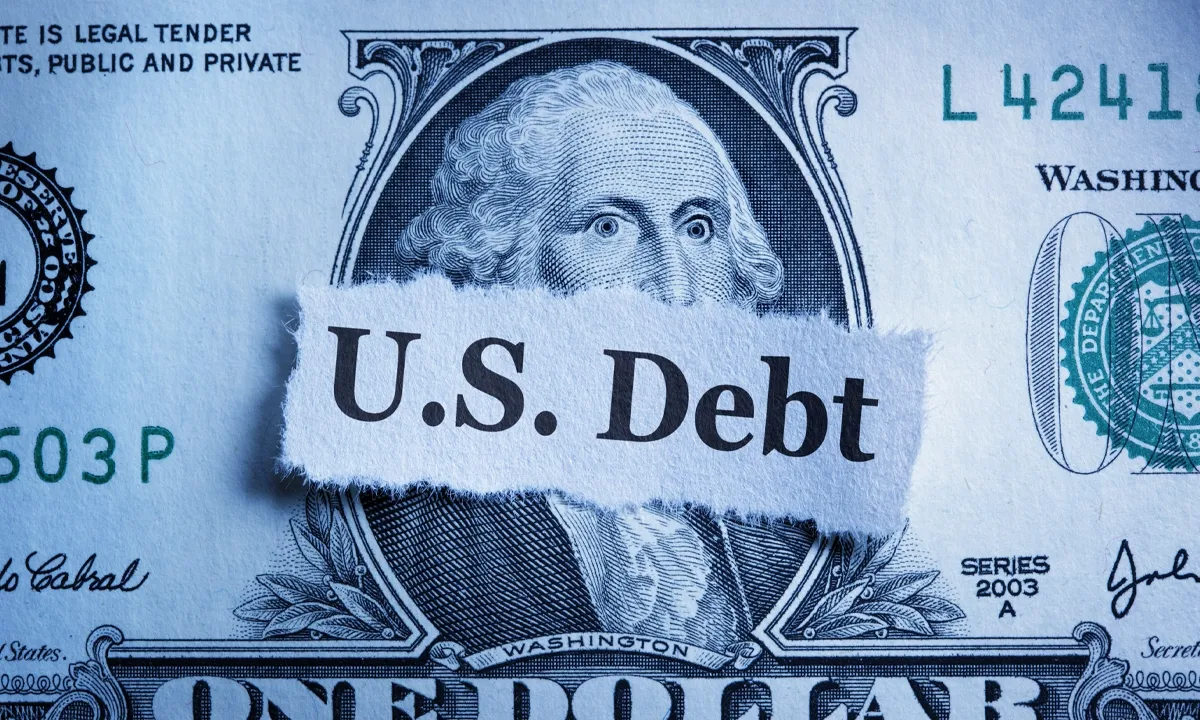Brian Armstrong Sounds Alarm on US Debt Crisis Fueling Bitcoin's Rise as Global Reserve Currency

Brian Armstrong, the CEO of Coinbase, issued a stark warning about the United States' escalating national debt, suggesting that Bitcoin could soon overtake the U.S. dollar as the world's reserve currency if Congress fails to act. Armstrong's comments, come at a critical juncture as the U.S. national debt has ballooned to $36.9 trillion in 2025, a sharp rise from $5.7 trillion in 2000, according to data from the World of Statistics. This growing fiscal crisis, Armstrong argues, threatens the dollar's global dominance and could accelerate the adoption of Bitcoin, a decentralized cryptocurrency designed to resist inflation and government control.
Armstrong's post highlights a broader concern about America's financial health, echoing warnings from economic experts. The U.S. debt-to-GDP ratio now stands at 122%, a level that signals unsustainable borrowing. This fiscal strain has already led to tangible consequences, such as Fitch Ratings downgrading the U.S. credit rating in 2023 due to rising debt and political brinkmanship over the debt ceiling. The dollar's share of global reserves has also declined, dropping from over 70% in 1999 to 58% in 2024, further underscoring the risks of fiscal mismanagement. Armstrong emphasized that while he supports Bitcoin, a strong America remains vital for global stability, urging lawmakers to prioritize reducing the deficit and paying down the debt.
Stay In The Loop and Never Miss Important Crypto News
Sign up and be the first to know when we publishPolitical and Economic Tensions Amplify Bitcoin's Appeal
The backdrop to Armstrong's warning includes recent legislative moves that have intensified the debt debate. In May 2025, House Republicans passed the Trump-backed "big, beautiful bill," which extends the 2017 tax cuts, increases military spending, and slashes funding for Medicaid, food aid, and clean energy initiatives.
This bill, criticized by Elon Musk on X as a "massive, outrageous, pork-filled Congressional spending bill," has drawn ire for exacerbating the fiscal strain. Musk's sharp rebuke, calling it a "disgusting abomination" and shaming those who voted for it, reflects a growing frustration with unchecked government spending. Such criticisms align with Armstrong's concerns, as the combination of rising debt and controversial fiscal policies fuels interest in alternative financial systems like Bitcoin and cryptocurrencies.
Bitcoin, created by the pseudonymous Satoshi Nakamoto in 2008, was designed as a response to the financial crisis, offering a decentralized currency with a fixed supply to counter inflation and government overreach. Its appeal has grown among institutional investors and even state governments, particularly as a hedge against the dollar's potential decline. Armstrong's warning taps into a broader narrative: Bitcoin empowers individuals by reducing reliance on centralized financial systems, a vision Nakamoto championed.
As the U.S. grapples with its debt crisis, the cryptocurrency's role in the global economy is becoming an increasingly pressing conversation, with figures like Armstrong and Musk amplifying the call for change. Whether Bitcoin or another cryptocurrency will truly challenge the dollar's dominance remains uncertain, but the debate underscores the urgency of addressing America's fiscal challenges.

